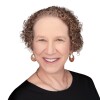Reach Higher teamed up with Handshake, one of the hottest start-up companies in the college-to-career arena, to contribute to the event’s programming. For Handshake, the opportunity was right on message. The company, which began in 2014 with four campus career centers as clients and expects to have 750 by this fall, highlights its role in democratizing hiring for college students as one of its major selling points. And as part of its one-day sponsorship, it provided an afternoon of career-planning advice to the group of about 25 students attending live in Twitter’s D.C. headquarters, plus whoever watched the stream live or on archive.
I’m quite certain more students watched Obama’s panel than the livestream of afternoon programming kicked off by Handshake’s earnest 28-year-old co-founder and chief executive, Garrett Lord. But the company plans to work through Reach Higher’s extensive network of schools and nonprofit partners to share some of its career-guidance resources with students. Its sample résumé, showing how they might describe the skills they learned in typical high-school jobs like working at a McDonald’s or as a store clerk, seemed especially useful. If nothing else, it might help them with that first internship even without those family connections.
Your turn: What should colleges measure?
The conversation with Waldo also touched on the rising argument that some people shouldn’t bother going to college — an idea he called “dangerous and pernicious” because, as he put it, too often the people saying that mean, “Do students of color really need to go to college?”
No doubt, the silence from the Trump White House on the importance of college is a factor. Waldo says Reach Higher “is stepping into the absence” to make the case, as a champion not only for students but also for the value of higher education itself.
Proving the value of college was also a theme Scott Cowen, the former president of Tulane University, highlighted last week in a talk with a small group of D.C. journalists and policy wonks, about his new book, Winnebagos on Wednesdays: How Visionary Leadership Can Transform Higher Education.
Cowen is probably best known for the academic overhaul he engineered as Tulane rebuilt after Hurricane Katrina. Today he worries that colleges are letting their naysayers define them. Higher ed needs to “reclaim the high ground,” he said. And the best way for them to show their real value is to “have metrics for it, measure it, and talk about it all the time.”
Ah, but what really counts as an “impact of value” (his words)? When I asked him, Cowen’s answer was familiar — and a little squishy. He said that will vary by institution, depending on its mission. He also referred me to the early pages of his book, where he highlights examples that deal with student engagement, graduates’ success, and institutions that have broadened access.
OK, those are all worthwhile. But still it left me wondering.
So now I’ll ask you, and let’s get beyond the familiar. In 2018, as higher education prepares students for a world where knowledge is exploding, technology has the capacity to bring civilizations closer together, and racism, religious strife, and nativism can just as easily break them apart, what should colleges really measure and talk about in terms of their impact on students and the world? Send me your thoughts, and I’ll share the best ideas in a future newsletter: goldie@chronicle.com.
I’d also like to hear from you generally, so send me an email if you have a tip to share or a question you’d like me to answer.

